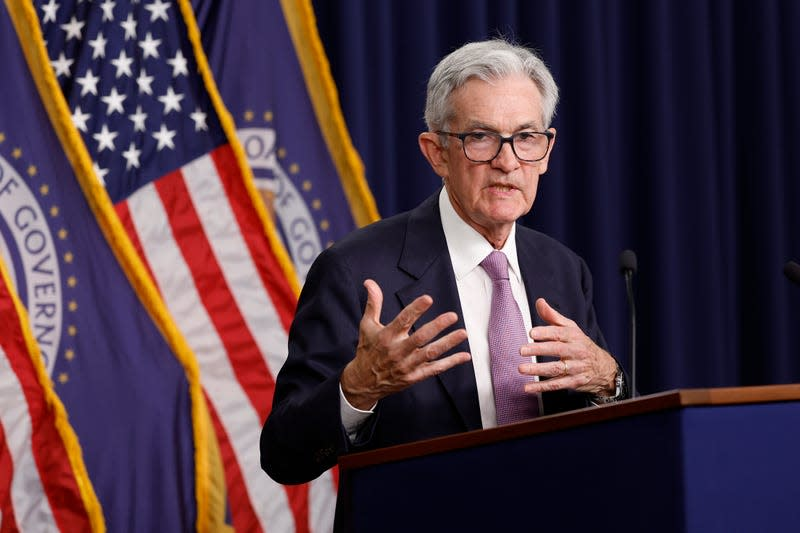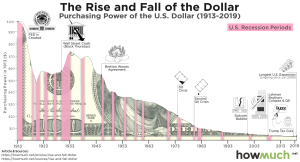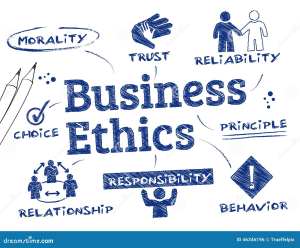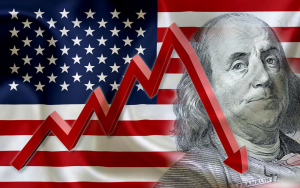Can Trump fire Fed chairman Jerome Powell? This provocative question has sparked discussions regarding the intricate Trump-Fed chair relationship, particularly in light of President Trump’s contentious interactions with Powell since his appointment in 2017. Trump’s criticism of Powell’s monetary policies has raised eyebrows, especially as the president voiced frustration over perceived delays in aggressive interest rate cuts intended to support his economic agenda. Should Trump proceed with the Jerome Powell removal, analysts caution it could destabilize the Federal Reserve’s independence, thus triggering unpredictable market reactions and affecting the confidence in Trump’s economic policies. As the legal repercussions of such an action remain blurry, the implications of attempting such a move could reverberate throughout the economy.
The question of whether the president has the authority to dismiss the Federal Reserve chairman is steeped in legal ambiguity and economic fear. In discussions surrounding potential replacements for the Fed chair, concerns are centered on how such a decision might influence monetary policy and market stability. The independence of monetary authorities like the Federal Reserve is a cornerstone of economic trust; thus, any action perceived as politically motivated could undermine their credibility. Furthermore, the market’s immediate reaction to the speculation of Powell’s ousting reflects deep-seated anxieties about the administration’s eagerness to impose a looser monetary policy. This situation raises substantial questions about the balance of power in economic governance and the long-term consequences for financial markets.
The Complex Relationship Between Trump and the Federal Reserve
The relationship between President Trump and Federal Reserve Chairman Jerome Powell has been marked by tension and opposing viewpoints. Since Powell’s appointment in 2017, Trump has openly criticized the Fed’s monetary policy, often blaming Powell for not taking more aggressive measures to stimulate the economy. This discord has raised questions about the potential for Trump to push for Powell’s removal, prompting discussions on the implications of such an action on the Federal Reserve’s independence and credibility in the financial markets.
Trump’s economic policies, focused heavily on stimulating growth through tax cuts and deregulation, clash with Powell’s measured approach to interest rates and inflation control. Powell maintains that aggressive monetary easing could lead to long-term economic instability, a sentiment echoed by many analysts who worry that Trump’s desire to influence Fed policy could undermine the institution’s role as an inflation stabilizer. Any move towards ousting Powell could breed uncertainty in the market, ultimately impacting investor confidence.
Can Trump Fire Fed Chairman? Analyzing the Constitutional Powers
The question of whether Trump can fire Powell hinges on interpretations of the Federal Reserve Act and executive authority. The Act allows for members to be removed for cause, but does it extend to the chair? This legal gray area means that any attempt by Trump to oust Powell could lead to a contentious legal battle regarding the separation of powers. There is no clear indication whether the Supreme Court would support the president’s removal of an independent agency head, which complicates the matter further.
Legal experts like Daniel Tarullo suggest that while there might be a loophole for Trump to pursue Powell’s removal, the political fallout could be severe. Should Trump proceed, it could provoke a market downturn even before any legal proceedings clarify the issue. Consequently, the potential risks associated with removing the Fed chair suggest that the administration might ultimately prefer to wait until Powell’s term ends, allowing for a more strategic appointment without disrupting market confidence.
Market Reaction to Powell’s Potential Removal
The prospect of Jerome Powell’s removal has rattled Wall Street, with investors fearing that such a move would signify an attempt to influence monetary policy to favor immediate economic growth over long-term stability. The market’s reaction to Powell is closely tied to perceptions of the Federal Reserve’s independence; any sign that the central bank may become more politicized could lead to a significant loss of trust among investors, resulting in higher long-term interest rates as they seek increased risk premiums.
Historical precedent indicates that markets thrive on Fed independence, favoring a central bank that prioritizes inflation control without direct political interference. The fear is that if Powell is removed, subsequent leaders may be pressured to take a more lenient approach to interest rates, risking inflation and economic instability. This scenario underscores the delicate balance between political influence and monetary policy, and why maintaining Powell in his role could be crucial for investor reassurance.
Federal Reserve Independence and Its Importance in Economic Policy
The Federal Reserve’s independence is foundational to its mission of ensuring economic stability and controlling inflation. In recent years, the interplay between political forces and economic policy has highlighted the importance of maintaining this independence, especially in light of Trump’s confrontational stance towards Powell. Many economists argue that a politically influenced Fed could face challenges in effectively managing monetary policy, undermining its credibility and effectiveness.
Maintaining the Fed’s independence ensures that monetary policy decisions are made based on economic indicators rather than political expediency. If Trump were to successfully remove Powell, it could set a precedent for future administrations, threatening the impartial nature of the Fed. Consequently, safeguarding the Federal Reserve’s autonomy not only preserves market confidence but also protects the overall integrity of U.S. economic policy.
Analyzing Presidential Authority Over Independent Agencies
There is an enduring debate regarding the extent of presidential authority over independent agencies like the Federal Reserve. The Constitution’s separation of powers implies a level of independence for these entities, but how the courts interpret this principle remains unsettled. Historical cases have reinforced protection for agency heads, yet the recent Supreme Court decision in Seila Law has cast doubt on the robustness of such protections, leaving open the possibility that Trump could pursue Powell’s removal under certain interpretations.
A key question arises: would the Supreme Court accept a broader view of executive power that allows for firings within independent agencies? If so, the implications could be profound, altering the balance of power between the White House and entities like the Federal Reserve. Observers predict that any legal challenges stemming from such a decision would be complex, creating additional uncertainty in markets already anxious about fiscal policy and economic growth.
The Implications of Choosing a Successor to Powell
Many analysts speculate on the potential market reactions to a successor that a Trump administration might appoint if Powell were to be removed early. The consensus appears to be that the mere act of dismissal would alarm investors by signaling a shift towards a more lenient monetary policy aimed at immediate growth. However, should Powell complete his term, the subsequent appointment would likely come under intense scrutiny as investors seek reassurance regarding the new chair’s commitment to the Fed’s traditional goals of inflation control and economic stability.
Market confidence is intricately tied to perceptions of who leads the Federal Reserve. Any successor to Powell must not only carry substantial economic credibility but also convey a commitment to maintaining the central bank’s independence. Thus, the selection following Powell’s tenure will be a pivotal moment that could either restore investor confidence or fuel further uncertainty, emphasizing the importance of strategic decision-making in the realm of economic policy.
Historical Context of Federal Reserve Leadership and Decisions
Historically, Federal Reserve leadership has undergone various transformations, reflecting shifts in economic policy and external pressures. The powers granted to the Fed have consistently evolved, influencing how its chair interacts with the presidential administration. The precedent set by past chairs like Alan Greenspan illustrates the tension that can arise when monetary policy decisions collide with political agendas. Tensions between past administrations have often led to debates on the desired balance between growth and inflation control.
As the landscape of U.S. economic policy changes, the role of the Federal Reserve remains crucial. Chairs like Powell must navigate these complexities while maintaining independence. Such roles come with the understanding that their decisions can affect not only domestic economic stability but also international markets. The autonomous role of the Fed becomes even more pressing in today’s globalized economy, highlighting the need for thoughtful leadership that prioritizes long-term prosperity over short-term political gains.
Potential Legal Challenges Faced by Trump if He Moves Against Powell
If Trump were to pursue the removal of Powell, he would likely face significant legal hurdles stemming from federal laws regarding agency governance. The complexity of the Federal Reserve Act and its interpretations could make any removal attempt contentious and fraught with implications. Legal challenges could arise based on the longstanding precedent protecting agency heads from arbitrary dismissal, which could ultimately lead to a drawn-out court battle that diverts attention from pressing economic concerns.
Moreover, the repercussions of any legal maneuvering surrounding Powell’s removal could alarm markets even further, as uncertainty fosters volatility. Trump’s administration may reassess the potential consequences of attempting to fire Powell, knowing that not only could it lead to unfavorable court rulings, but also adversely affect public perception of the White House’s commitment to economic stewardship. Thus, the legal landscape surrounding federal agency leadership and its impact on financial markets requires careful navigation.
The Broader Economic Impacts of Federally Mandated Monetary Policy
The implications of federal monetary policy transcend immediate financial markets, influencing a wide array of economic variables, including employment rates, consumer spending, and business investment. The relationship between White House policies and Federal Reserve actions creates a critical feedback loop that shapes overall economic activity. Trump’s administration has often emphasized the need for aggressive monetary policy to spur growth, yet such strategies must be approached cautiously to avoid collateral damage.
An effective monetary policy requires a delicate balance between stimulating growth and controlling inflation. Disruption in leadership at the Fed could lead to conflicting agendas, creating further uncertainty for the broader economy. The role of the Fed as an independent body ensures that decisions are made with a long-term view, safeguarding against the risks of short-term political pressures. In this context, maintaining the integrity of the Federal Reserve remains paramount for fostering sustained economic development.
Frequently Asked Questions
Can Trump fire Fed chairman Jerome Powell?
While President Trump hinted at the possibility of firing Fed Chairman Jerome Powell, legal experts indicate that such a move could undermine the Federal Reserve’s independence. The Federal Reserve Act does not explicitly grant the president removal authority over the chair, so any such action could lead to significant market turmoil.
What is the Trump Fed chair relationship regarding Jerome Powell?
The relationship between Trump and Fed Chair Jerome Powell has been contentious, with Trump expressing frustration over Powell’s interest rate policies. Trump has suggested that Powell’s cautious approach to monetary policy is detrimental to the economy, leading to speculation about Powell’s potential removal.
What would happen if Trump were to attempt Jerome Powell’s removal?
If Trump attempted to remove Powell, the market reaction could be severe. Analysts believe that such an action would raise concerns over the Fed’s independence, possibly resulting in increased long-term interest rates as markets react to perceived instability.
Does the Federal Reserve’s independence protect Jerome Powell from being fired by Trump?
The Federal Reserve’s independence is meant to insulate it from political pressures. While technically Trump could try to remove Powell, legal interpretations suggest that such a move would face challenges, raising questions about the implications for the Fed’s credibility and its role in maintaining economic stability.
How have Trump’s economic policies affected his relationship with the Fed?
Trump’s economic policies, particularly his approach to tariffs and interest rates, have created tensions with the Federal Reserve. Powell’s reluctance to lower rates aggressively reflects a disagreement that has led Trump to publicly criticize the Fed chair and contemplate removal.
What are potential legal arguments for Jerome Powell’s removal by Trump?
Legal experts debate whether Trump has the authority to remove Powell, with concerns about ‘for cause’ removal provisions under the Federal Reserve Act. While some argue that the chair’s term could allow for removal, the Supreme Court’s interpretation of executive power may ultimately decide this issue.
Why is market reaction significant regarding Powell’s potential removal?
Market participants fear that removing Powell could signal a shift toward a more accommodative monetary policy, which could destabilize pricing and increase inflation risks. The market’s trust in the Fed as an independent entity is crucial for maintaining economic stability.
How does the Fed chair influence monetary policy deliberations?
The Fed chair plays a pivotal role in shaping monetary policy but does not have unilateral power. Decisions require consultation and consensus among the Federal Open Market Committee (FOMC) members, although the chair influences discussions significantly.
Would replacing Powell with a new Fed chair ease market concerns?
Markets would likely still react negatively to Powell’s removal regardless of who succeeds him, interpreting it as a shift toward looser monetary policy. Trust in the Fed could be damaged, impacting financial markets even further.
| Key Point | Details |
|---|---|
| Authority to Fire | Legal interpretation regarding the president’s ability to fire the Fed chair is complex. |
| History with Trump | Trump has had a tumultuous relationship with Powell, often critical of the Fed’s interest rate policies. |
| Market Reactions | Removing Powell might lead to significant market instability due to fears of political influence over the Fed. |
| Legality of Removal | The Federal Reserve Act allows removal for cause but does not explicitly mention the chair’s protections. |
| Impact on Independence | Firing the chair could undermine the Fed’s independence and its ability to operate without political pressure. |
| Supreme Court Considerations | Forthcoming Supreme Court decisions may redefine the limits of presidential power regarding independent agencies. |
| Future Predictions | Trump’s decision not to fire Powell may stem from awareness of potential negative consequences for the market. |
Summary
Can Trump fire Fed chairman? The complex legal and political relationship between President Trump and Federal Reserve Chairman Jerome Powell raises significant questions about the influence of political leadership on central banking. While the Federal Reserve Act provides frameworks for removal, interpretations of due cause are debated, and the implications on market stability and central bank independence are profound. Given the existing precedent and the potential reaction from financial markets, it appears any move to dismiss Powell would be fraught with risk, prompting concerns about the future of monetary policy in the U.S.




